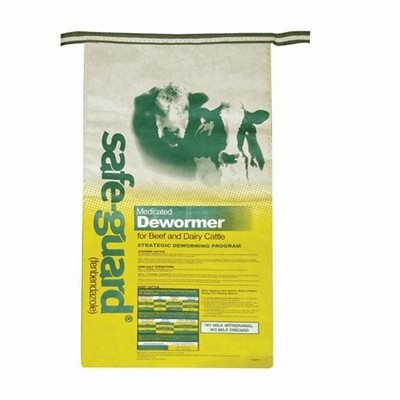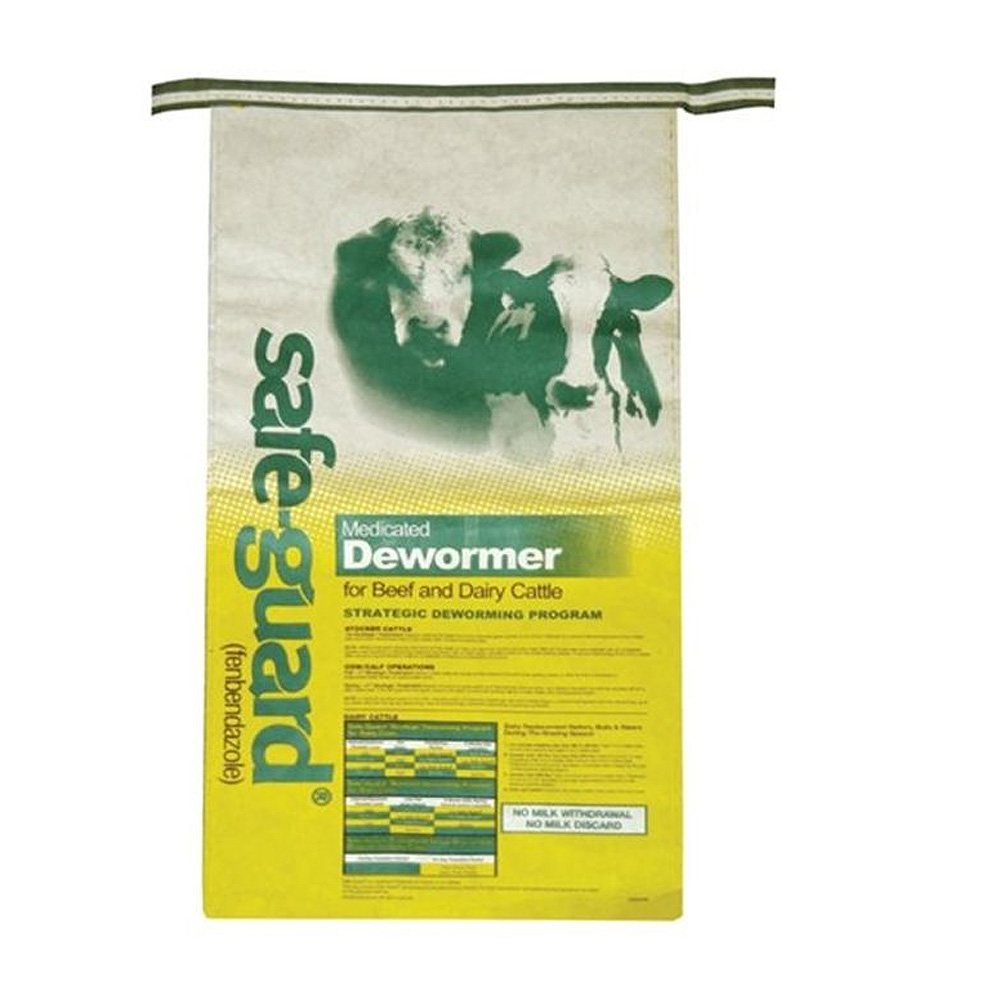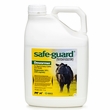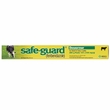Safe-Guard Dewormer (0.5% Fenbendazole) Pellets for Beef and Dairy Cattle and Horses, 25lb
Description
Safe-Guard Dewormer Pellets, with 0.5% Fenbendazole, offer versatile parasite control for beef and dairy cattle and horses. Renowned for their effectiveness, these pellets are designed to provide comprehensive protection against internal parasites. Their convenient pellet form simplifies dosing for cattle and horses. Safety and reliability are paramount in the design of Safe-Guard Pellets, making them a trusted choice for deworming. Recognized by veterinarians, they are a valuable tool for maintaining the health and well-being of your livestock and horses.
Key Features:
- Trusted Dewormer: Safe-Guard Pellets, with 0.5% Fenbendazole, are a trusted solution for controlling internal parasites in beef and dairy cattle as well as horses.
- Multi-Species Protection: These pellets provide comprehensive parasite control for multiple livestock types, ensuring their health and well-being.
- Convenient Pellet Form: Easy dosing with pellets, simplifying administration for cattle and horses.
- Safe and Reliable: Designed with animal safety in mind, Safe-Guard Pellets are a reliable choice for effective deworming.
- Veterinarian Recommended: Recognized by veterinarians, this dewormer is a valuable tool for livestock and horse health.
Intended Use:
Safe-Guard Dewormer Pellets with 0.5% Fenbendazole are intended for the control and prevention of internal parasites in beef and dairy cattle, as well as horses, ensuring their health and productivity.
Useful Information
Safe-Guard Dewormer Pellets, containing 0.5% Fenbendazole, provide versatile parasite control for beef and dairy cattle as well as horses. To ensure the effectiveness of this dewormer, follow these dosage and administration guidelines:
- Determine Cattle Weight:
- Accurately estimate the weight of each animal you are treating. This step is essential for calculating the appropriate dosage. Use a cattle scale for cattle and a horse scale for horses or weight estimation methods for accuracy.
- Dosage Calculation:
- Refer to the product label or consult with your veterinarian to determine the recommended dosage per unit of weight. Dosage may vary based on the specific type of animal and the parasites you are targeting.
- Administer Pellets Orally:
- Safe-Guard Dewormer Pellets are designed for oral administration. Feed the calculated dosage to the animal by mixing the pellets with their regular feed. Ensure that the animal consumes the full dosage.
- Follow Recommended Dosage:
- Administer the calculated dosage accurately to each animal. It is crucial to provide the correct amount to ensure effective parasite control.
- Repeat as Directed:
- The frequency of deworming may vary based on your specific animal's needs, the type of parasites you are targeting, and the product's instructions. Follow the recommended deworming schedule provided on the product label or by your veterinarian.
- Withdrawal Period:
- Be aware of any withdrawal periods specified on the product label. These indicate the duration during which animal products like milk or meat should not be consumed following deworming.
- Consult with a Veterinarian:
- For tailored guidance on the dosage and administration of Safe-Guard Dewormer Pellets, and to establish an effective deworming schedule, consult with your veterinarian. They can provide specific recommendations based on your animal's health and parasite control needs.
- Record-Keeping:
- Maintain accurate records of deworming procedures, including dates, dosages, and the weight of each treated animal. This record-keeping helps track the effectiveness of the deworming program.
Safe-Guard Dewormer Pellets are a reliable solution for cattle and horse parasite control when administered correctly. It is important to use the product as directed, considering the specific type of animal and the parasites you are targeting.






